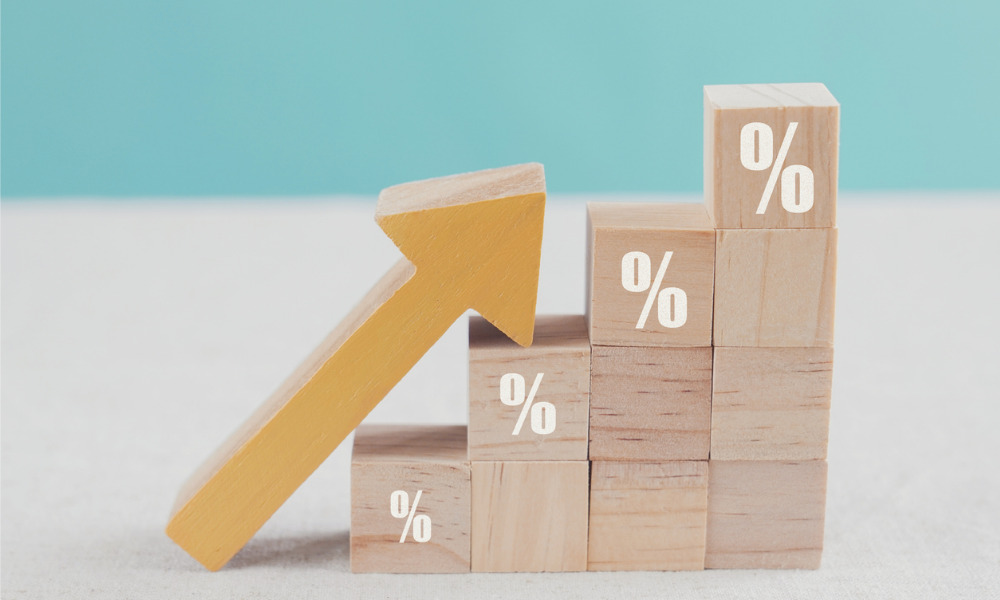Bank says "a lot needs to go right" for the rate to keep rising

With the Official Cash Rate steadily rising, the market is largely predicting a peak of around 2.5% - however, one major bank says that “a lot needs to go right” for the Reserve Bank to keep raising rates, and is predicting a slightly lower peak of 2%.
Commenting on the outlook for the next year, ANZ chief economist Sharon Zollner said that other market predictions may have “overcooked” it slightly, and a slightly lower peak would be in line with the Reserve Bank’s slow and cautious approach.
With an imminent move into the COVID-19 Protection Framework and with international borders opening from next year, the level of uncertainty around COVID-19 will rise, and much of the coming months will be a ‘wait and see’ period to see what impact the changes will have on case numbers, and on potential restrictions. Zollner said that as mortgage rates rise, we can expect to see retail volumes flattening off, and inflation to continue rising before peaking at some stage next year.
“Our expectation is that an OCR of about 2% will probably do the job,” Zollner said.
“The market is pricing more than that, but there’s a lot that needs to go right for them to be able to keep raising rates. If they raise rates over the next year at every opportunity, that’ll still only take the OCR up to 2%. So we’re quite comfortable with that as our forecast peak at the moment, we think the market may have overcooked it.”
“At the moment though, the inflation narrative is really dominating, and fair enough too - it’s quite startling,” she explained.
Read more: Market reacts to OCR increase - how high will it go?
“Mortgage rates are going up, and living costs are going up. The COVID risks are providing a layer of uncertainty, the days of your housing market paying for your pool are probably behind us.”
“That’s a lot for a strong labour market to offset, but the data is a bit mad due to the lockdown last year, and the lockdown now. It’s going to be all over the shop for a while, but we think that when the dust settles, it’s going to be much flatter, and possibly negative in real-terms because with inflation so high, you actually have to differentiate quite carefully between nominal spending and actual volumes of spending. We see inflation peaking at nearly 6% next year.”
Zollner said that we can also expect to see a significant drop in house price inflation over the coming year, as various factors come together to step the growth which has seemed uncontrollable over the past eighteen months.
Still, with the labour market so strong, she said that a “true house price crash” is not likely, as banks will already have tested borrowers against higher rates before approving their lending.
Read more: OCR increase can stabilise property prices - experts
“House sales have dropped a lot, and they’re now back at about average levels,” Zollner said.
“But house price inflation is still over 30%, though the current level of sales would imply that house price inflation should drop back to about 5% quite quickly, and that’s our forecast.”
“The investors have stepped back since that tax change, and the queue of first home buyers is being eaten through quite quickly,” she explained.
“So the days of prices surprising us on the upside are very limited, and the housing market is up to about its eight life. The risks are very much skewed to the downside from here. The housing affordability equation is insane, the OCR and mortgage rates are going up quickly - we’ve had the sharpest six-monthly rise in mortgage rates in a decade, and banks will inevitably increase the rates that they test you on. We’re building houses all over the shop, and Auckland’s population is shrinking.”
“However, a true house price crash is unlikely as long as unemployment remains so low,” Zollner concluded.
“People will cut their other discretionary spending, and of course banks will have tested whether they can do that, and still pay their mortgage at higher rates. It would really take a big rise in unemployment and more people being put in a ‘must sell’ situation, but that’s not our forecast.”



